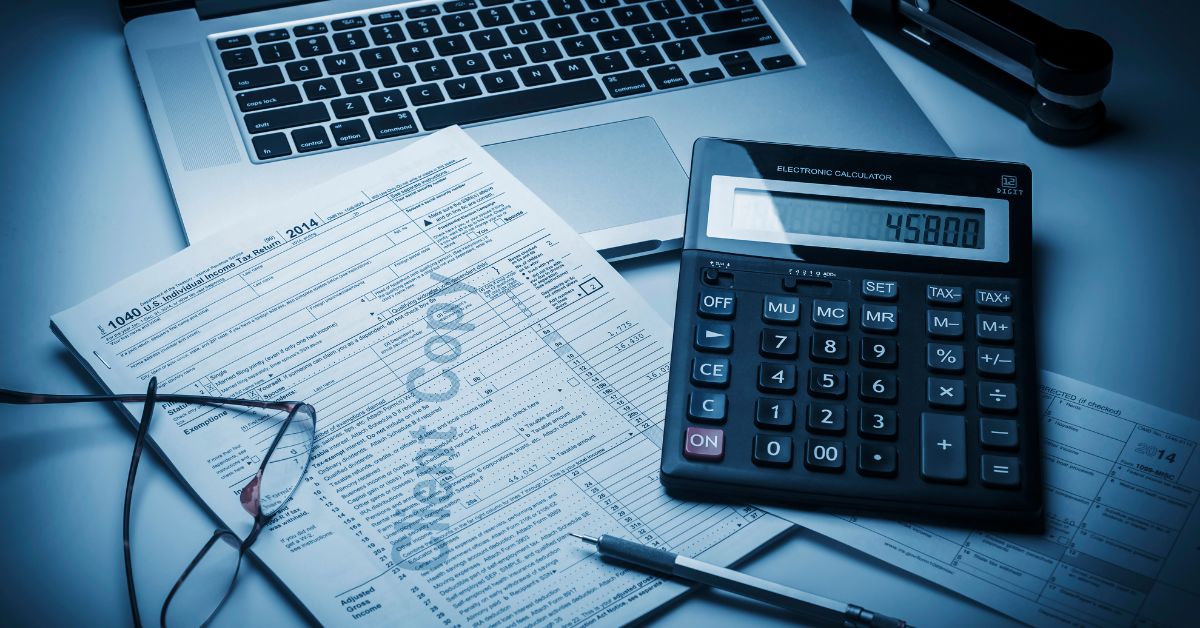DIY Accounting vs. Professional Accounting Services
 " alt="">
" alt="">
 " alt="">
" alt="">
Accurate accounting is the lifeblood of any successful venture. DIY Accounting vs. Professional Accounting Services can mean the difference between thriving and barely surviving.
In this post, we’ll dive into the world of small business accounting, comparing the do-it-yourself (DIY) approach with professional accounting services. We’ll weigh the pros and cons of each method and share real-life examples of DIY accounting missteps that could have been avoided with expert help.
Whether you’re a bootstrapping startup or an established small business, understanding these options can save you time, money, and a lot of headaches. Let’s crunch some numbers and make sense of the accounting maze!
Understanding DIY Accounting

DIY accounting is the practice of handling your business’s financial tasks in-house, without the help of external professionals. This means you, as the business owner, or perhaps a non-specialist employee, are responsible for tasks like bookkeeping, financial reporting, and tax preparation. Many small businesses opt for this approach, especially in the early stages.
Common tools used in DIY accounting include software like QuickBooks, FreshBooks, or Wave, which offer user-friendly interfaces for tracking income and expenses. Some businesses even start with basic spreadsheet software like Microsoft Excel or Google Sheets to record transactions and create simple financial statements.
Pros of DIY Accounting
- Cost Savings: The most obvious advantage of DIY accounting is cost. By handling accounting tasks yourself, you avoid the expense of hiring an accountant or bookkeeper. This can be especially beneficial for startups and small businesses operating on tight budgets. The money saved can be reinvested in other areas of your business.
- Control: When you manage your own books, you have direct, real-time access to your financial data. This hands-on approach can give you a deeper understanding of your business’s financial health. You’ll know exactly where every dollar comes from and goes, which can be empowering and help with quick decision-making.
- Learning Experience: Doing your own accounting can be a valuable educational experience. You’ll learn the ins and outs of your business’s finances, understand financial terminology, and gain insights into cash flow patterns. This financial literacy can be invaluable as your business grows and financial decisions become more complex.
Cons of DIY Accounting
- Time-Consuming: Accounting tasks can be a major time sink. From categorizing transactions to reconciling bank statements and preparing tax documents, these tasks can eat up hours each week. That’s time you could be spending on core business activities like product development, marketing, or customer service. For many business owners, time is their most precious resource.
- Risk of Errors: Without professional training, the risk of making mistakes increases. A simple classification error or a missed deduction can lead to inaccurate financial statements or tax returns. These errors can result in penalties from the IRS, misinformed business decisions, or difficulties securing loans or investments. In a 2019 survey, 89% of spreadsheets were found to contain errors, highlighting the risks of DIY methods.
- Limited Expertise: Tax laws and financial regulations are complex and ever-changing. In 2023, for example, several tax provisions from the 2017 Tax Cuts and Jobs Act are set to expire, potentially impacting businesses. A DIY accountant might miss these nuances. Additionally, you might not have the expertise to leverage all possible tax deductions or structure your finances optimally for growth. This lack of specialized knowledge can cost you more in the long run.
Understanding Professional Accounting Services

Professional accounting services involve hiring qualified accountants or accounting firms to manage your business’s financial tasks. These professionals have specialized education, certifications (like CPA – Certified Public Accountant), and years of experience in handling various aspects of business finances.
Services typically include:
- Bookkeeping: Daily recording of transactions, reconciling bank statements, and managing accounts payable and receivable.
- Tax Preparation and Planning: Preparing and filing tax returns, strategizing to minimize tax liabilities, and ensuring compliance with tax laws.
- Financial Reporting: Creating accurate financial statements (income statements, balance sheets, cash flow statements) for internal decision-making and external stakeholders.
- Financial Planning and Analysis: Budgeting, forecasting, and providing insights for strategic business decisions.
- Audit Support: Assisting with or conducting internal audits, or representing your business during external audits.
Pros of Professional Accounting Services
- Expertise: Professional accountants bring a wealth of knowledge to the table. They stay updated on the latest tax laws, accounting standards, and industry-specific regulations. For example, in 2022, the Financial Accounting Standards Board (FASB) issued new guidance on accounting for government grants, which could significantly impact businesses that received pandemic-related assistance. A professional would ensure you’re adhering to such changes.
- Accuracy and Compliance: Mistakes in accounting can be costly. In 2020, the IRS issued over $14 billion in civil penalties related to individual and business tax returns. Professional accountants significantly reduce the risk of errors. They ensure your books are accurate, your tax returns are correct and timely, and your business complies with all relevant regulations, reducing the risk of fines or audits.
- Time Savings: By outsourcing your accounting, you free up substantial time. A 2022 survey found that small business owners spend an average of 120 working days per year on administrative tasks, including accounting. Imagine what you could achieve with those 120 days back—developing new products, expanding your market reach, or simply having a better work-life balance.
Cons of Professional Accounting Services
- Cost: The primary drawback of professional services is the cost. Rates vary widely based on the level of service, from perhaps $100-$300 per month for basic bookkeeping to several thousand dollars for comprehensive accounting and advisory services. For a bootstrapping startup or a small business with tight margins, this can be a significant expense.
- Less Control: When you hand over your books to a professional, you might feel a loss of control. You’re no longer privy to every transaction as it happens. Some business owners, especially those who prefer a hands-on approach, might find this unsettling. However, good accountants will provide regular reports and are always available to answer your questions.
- Dependence: Relying on an external service for such a critical function can create a form of dependence. If your accountant is unavailable, changes firms, or if you decide to switch providers, there can be disruptions. Transitioning your financial data and processes to a new accountant can be time-consuming and stressful, especially during tax season or major financial events.
Real-Life Examples of DIY Accounting Pitfalls

Tax Filing Errors In 2022, Sarah, the owner of a small online boutique, decided to save money by doing her own taxes. Her business had grown significantly, with sales crossing state lines. Unaware of the complexities of multi-state tax obligations, Sarah only filed taxes in her home state.
Six months later, Sarah received notices from two other states where she had substantial sales, demanding unpaid sales taxes plus interest and penalties. The total came to over $15,000 – a huge blow for her small business. Had Sarah worked with a tax professional, they would have identified her multi-state tax obligations early on, set up proper collection and remittance processes, and saved her from these costly penalties.
Cash Flow Mismanagement
In 2023, Mark’s tech startup was growing fast. Excited by increasing revenue, he used QuickBooks for basic bookkeeping but didn’t fully understand accrual accounting. He recorded sales when invoices were sent, not when payments were received. As a result, his financial statements showed a rosy picture.
Thinking his business was flush with cash, Mark hired more staff and invested in expensive equipment. However, many of his clients had 90-day payment terms. By August, despite high “revenue” on paper, Mark couldn’t make payroll or pay suppliers. He had to lay off staff and take out a high-interest loan to stay afloat.
A professional accountant would have set up proper accrual accounting, provided accurate cash flow forecasts, and advised Mark on managing accounts receivable, preventing this crisis.
Compliance Issues In 2024, Elena’s eco-friendly packaging company won a major contract with a publicly-traded corporation. The client required audited financial statements for the past three years as part of their vendor due diligence. Elena had been managing her books with spreadsheets and wasn’t aware of the specific accounting standards required for auditable financials.
When the auditors reviewed her records
they found inconsistencies in revenue recognition, incorrect asset depreciation, and inadequate documentation for expenses. The audit report was unfavorable, and Elena lost the contract. Moreover, the issues flagged triggered a state regulatory review, resulting in fines for non-compliance with state business reporting requirements.
A professional accountant would have ensured Elena’s books adhered to Generally Accepted Accounting Principles (GAAP) from the start, maintained proper documentation, and prepared her for potential audits. The cost of these services would have been a fraction of the lost contract and fines.
These real-life examples underscore how DIY accounting, while tempting for its apparent cost savings, can lead to expensive mistakes. Tax penalties, cash flow crises, and compliance issues can set a business back years or even force it to close. Professional accounting services, though an investment, can prevent these pitfalls and contribute to long-term business success.
Making the Decision

Assessing Your Business Needs To determine whether DIY accounting or professional services are right for you, consider the following questions:
- Business Complexity: Do you have multiple revenue streams, operate in several states or internationally, or have complex inventory or cost structures?
- Growth Stage: Are you a startup, rapidly growing, or an established business with stable operations?
- Transaction Volume: How many financial transactions (sales, purchases, payroll) do you process monthly?
- Financing: Do you plan to seek loans, investors, or sell your business in the near future? These often require professional-grade financial statements.
- Industry: Are you in a heavily regulated industry (e.g., healthcare, finance) with specific accounting rules?
- Personal Interest and Skill: Do you have an interest in accounting and the time to develop these skills properly?
- Time Value: How much is your time worth? Could the hours spent on accounting be more valuable if spent on core business activities?
If you answered “yes” to questions 1-5 or “no” to 6-7, professional services might be the better choice. A “no” to most, coupled with a simple business structure and low transaction volume, might make DIY feasible.
Cost-Benefit Analysis Let’s break down a hypothetical scenario:
Imagine you run a small e-commerce business with $500,000 annual revenue. DIY accounting using QuickBooks Online costs you $25/month ($300/year). You spend 10 hours a week on bookkeeping and tax prep, totaling 520 hours yearly. If your time is worth $50/hour (based on revenue), the true cost of DIY is:
- Software: $300
- Your time: $26,000 (520 hours * $50)
- Total DIY Cost: $26,300
Now, consider a professional service:
- Monthly bookkeeping and reports: $400 * 12 = $4,800
- Tax preparation and planning: $2,500
- Total Professional Cost: $7,300
While professional services cost $7,000 more in cash, you save nearly $19,000 worth of your time. Plus, professionals might save you money through better tax planning, accurate financial guidance, and avoiding costly mistakes.
The takeaway: As your business grows in size and complexity, the benefits of professional services often outweigh the higher upfront costs.
Hybrid Approach
Many businesses find success with a hybrid approach, especially as they transition from startup to growth phase. Here’s how it might work:
- DIY Bookkeeping: Handle day-to-day transaction entries and bank reconciliations using user-friendly software. This keeps you connected to your business’s financial pulse.
- Professional Review: Have an accountant review your books quarterly to ensure accuracy and make adjustments. This catches errors before they compound.
- Professional Tax and Compliance: Outsource tax preparation, tax planning, and compliance tasks. Tax laws are intricate; professional help here is often non-negotiable.
- DIY Analysis, Professional Guidance: Use your accounting software’s reports for basic insights, but have a professional review and provide strategic advice periodically.
Example: Marie runs a growing online course business. She records daily transactions in Wave (free accounting software). Quarterly, her accountant reviews the books, makes adjustments, and provides insights. The accountant also handles year-end processes, tax filings, and advises on tax-efficient business decisions. This way, Marie stays involved but avoids the biggest DIY pitfalls.
The right choice—DIY, professional, or hybrid—depends on your unique business situation. By carefully assessing your needs, valuing your time, and understanding the risks of mistakes, you can make an informed decision that supports your business’s financial health and growth.
FAQs on DIY Accounting vs. Professional Accounting Services

Q: What is DIY accounting?
Ans: DIY accounting involves managing your own business finances without the help of a professional accountant. This typically includes tasks like bookkeeping, tax filing, and financial reporting using tools such as spreadsheets or accounting software like QuickBooks.
Q: What are the main advantages of DIY accounting?
Ans: The main advantages of DIY accounting include cost savings, as you do not need to pay for professional services, greater control over your financial data, and the opportunity to learn more about your business’s finances.
Q: What are the biggest risks associated with DIY accounting?
Ans: The biggest risks include the potential for errors due to lack of expertise, time consumption that takes away from core business activities, and the possibility of non-compliance with tax laws and financial regulations.
Q: What are professional accounting services?
Ans: Professional accounting services are provided by certified accountants or accounting firms. They offer a range of services including bookkeeping, tax preparation, financial planning, auditing, and ensuring compliance with financial regulations.
Q: How can professional accounting services benefit my business?
Ans: Professional accounting services can provide expertise and accuracy, ensure compliance with laws and regulations, save you time, and offer valuable financial insights that can help grow your business.
Q: Are professional accounting services expensive?
Ans: The cost of professional accounting services varies depending on the complexity of your business’s finances and the specific services you require. While there is an initial investment, many businesses find that the benefits and potential savings in terms of time and reduced errors justify the cost.
Q: Can I use both DIY accounting and professional accounting services?
Ans: Yes, many businesses adopt a hybrid approach where they handle basic accounting tasks themselves and outsource more complex functions, such as tax preparation and financial planning, to professionals.
Q: What should I consider when deciding between DIY accounting and professional services?
Ans: Consider factors such as the size and complexity of your business, your own accounting knowledge and skills, the time you can dedicate to accounting tasks, and your budget for accounting services. Conducting a cost-benefit analysis can help in making an informed decision.
Q: What are some common mistakes made in DIY accounting?
Ans: Common mistakes include errors in tax filing, incorrect financial forecasting, poor cash flow management, and failing to comply with financial regulations. These mistakes can lead to penalties, cash flow problems, and legal issues.
Q: How can I find a reliable professional accounting service provider?
Ans: Look for certified accountants or reputable accounting firms with positive reviews and testimonials. Ask for recommendations from other business owners, and ensure the provider has experience in your industry. It’s also important to ask about their services, fees, and how they can meet your specific accounting needs.
Final Thoughts DIY Accounting vs. Professional Accounting Services
Throughout this post, we’ve navigated the choppy waters of small business accounting, comparing the allure of do-it-yourself methods with the security of professional services. Let’s recap our voyage:
We started by recognizing that while 40% of small business owners dread accounting tasks, these tasks are crucial for business success. DIY accounting offers cost savings, control, and a learning experience, but it comes with significant risks: it’s time-consuming, prone to errors, and limited by the business owner’s expertise. We saw how these pitfalls materialized in real-life scenarios—from Sarah’s $15,000 multi-state tax penalty to Mark’s cash flow crisis and Elena’s lost contract due to non-compliant financials.




